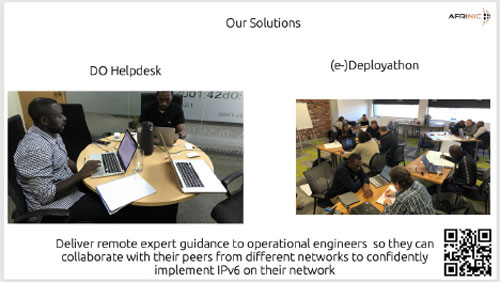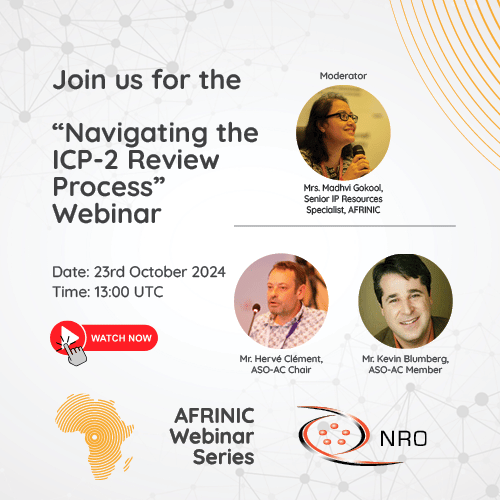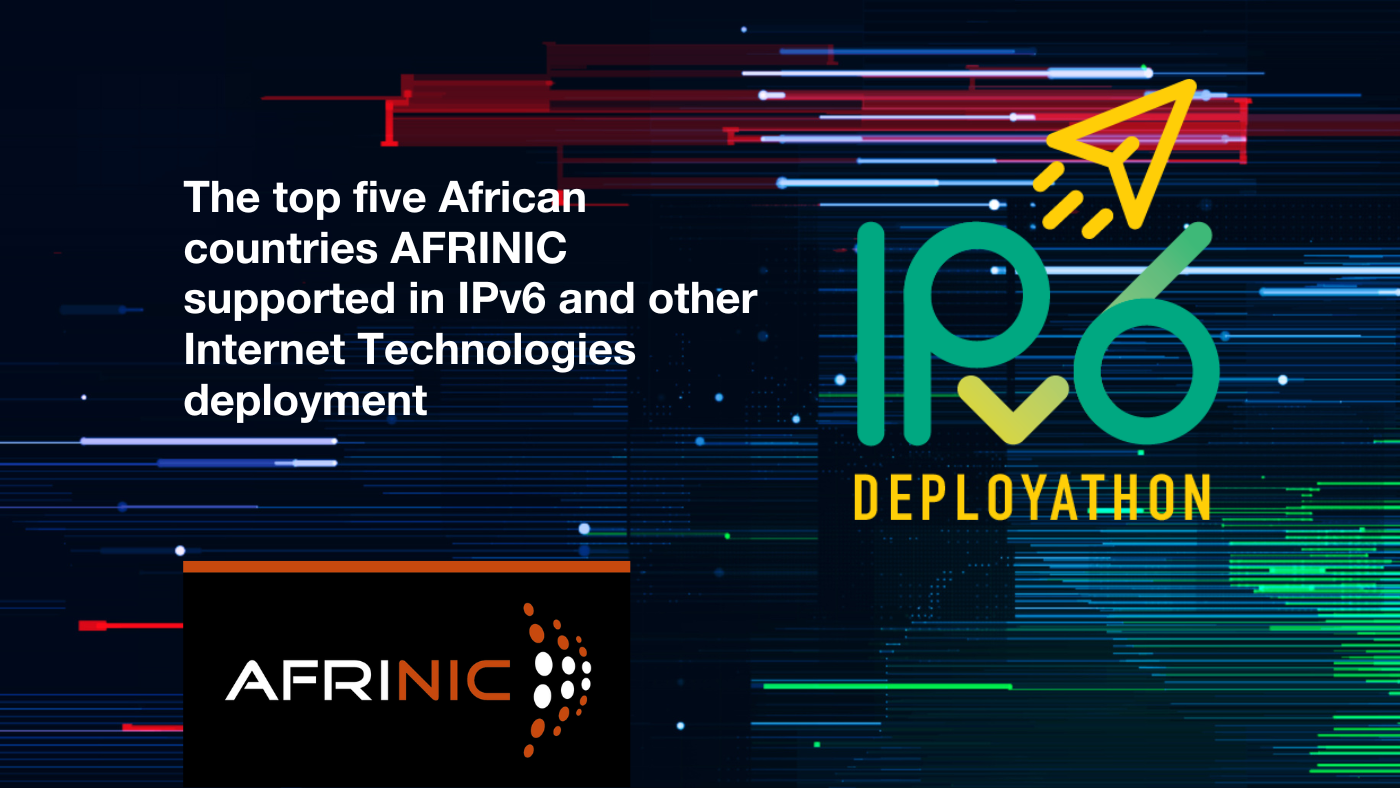Introduction

Our solutions to scaling the Internet
Our Deployment Milestones

The deployment milestones achieved by network operators in Africa are a testament to AFRINIC's commitment to supporting the growth and development of the Internet in Africa. As of February 2023, Out of the 32 African countries that have benefited from AFRINIC's support, Nigeria leads the way with 114 milestones achieved, followed by South Africa with 78, Malawi with 46, Kenya with 22, and Cameroon with 15.
- Valid route6 object (69)
- Validated address plan (IPAM) (55)
- Correct RPKI ROA (51)
- Advertised IPv6 prefix (38)
- IPv6-enabled core (13)
Customer Feedback
Conclusion
Annex: List of AFRINIC deployment milestones explained
|
KPI |
Description |
|
IPv6 prefix (PI) |
The Organisation gets an IPv6 prefix from AFRINIC or LIR |
|
IPv6 project approvals |
Project approved by the top management |
|
Advertised IPv6 prefix |
Prefix visible on Internet routing table |
|
Valid route6 object |
IRR object for various prefixes exist in AFRINIC database |
|
Validated address plan (IPAM) |
IPv6 prefix allocated according to address plan and implemented within an IP Address Manager |
|
IPv6-compliant procurement policy |
Current procurement policy updated with explicit mention of each version of IP |
|
IPv6 traffic from test VLAN |
IPv6 traffic running from a test environment within organization network |
|
Detailed IPv6 project plan |
Project plan with all the 10 key elements |
|
IPv6-enabled DNS |
DNS services (server and/or recursive) via running on IPv6, IPv6 reverse properly setup |
|
IPv6-enabled website |
Website reachable on IPv6 |
|
IPv6-enabled customer |
Final user can source and receive IPv6 traffic |
|
IPv6-enabled core |
IPv6 running in the core network |
|
IPv6-enabled access network |
IPv6 running in the access network |
|
Approved detailed IPv6 project plan |
IPv6 project plan approved by the top management |
|
IPv6 domain objects |
IRR object ‘domain’ set for IPv6 block in AFRINIC database |
|
Correct RPKI ROA |
Requestor has generated valid Route Origin Authorisation certificate for his IPv6 blocks |
|
Completed network audits |
All the key portions of organization network have been audited (edge,core,access) |
|
Initial address plan |
IPv6 Address planner has been used with requestor to evaluate the IPv6 prefix size to request to AFRINIC or upstream |
|
DNSSEC signed IPv6 reverse zone |
At least one IPv6 reverse zone is signed |


